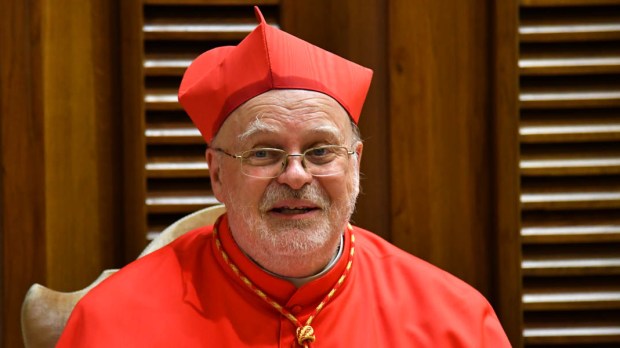Recently, the Nordic Bishops’ Conference published a striking text regarding Church teaching on human sexuality. The bishops, representing the countries of Iceland, Finland, Sweden, Denmark, and Norway in northern Europe, acknowledged that “many are perplexed” by the Church’s discourse on the subject. However, in their letter they called for a rediscovery of “the sacramental nature of sexuality in God’s plan, the beauty of Christian chastity, and the joy of friendship.”
Condemning “unjust discrimination of any kind, also on the basis of gender or orientation,” they expressed their disagreement when the current political and cultural movements put forward “a view of human nature that abstracts from the embodied integrity of personhood, as if physical gender were accidental.” They also protested “when such a view is imposed on children.”
The pastoral letter was first read in parishes across the Nordic countries, but its reach then went far beyond, as it was widely shared in Catholic circles.
Cardinal Anders Arborelius, Bishop of Stockholm (Sweden) and vice-president of the Conference, spoke to us about what motivated the bishops to write this letter.
Why did the Nordic Bishops decide to write this pastoral letter on human sexuality?
Cardinal Arborelius: There is a lot of confusion and people feel worried about all the new issues regarding human anthropology and sexuality. So we tried to give the faithful a summary of a more biblical outlook on these issues in order to show how the Church could help people to answer the new challenges.
The letter was then read out in parishes. How did the faithful receive it? What has the feedback been?
Cardinal Arborelius: Many faithful in our countries were grateful for the help offered by the Church. A few had some critical remarks. We were surprised that many from other countries reacted in a very positive way to our letter.
What do you think the Church can do to create spaces where people who are “perplexed” by Christian teaching on sexuality can develop their understanding?
Cardinal Arborelius: We have seen that such spaces could appear quite spontaneously during the Synodal process in our Diocese. When people come together to speak about the Catholic faith, about the message of the Bible, these questions will be brought up in a very natural way. But if we would say “now we shall speak explicitly about sexuality” it would be more difficult. These issues have to be part of something more all-encompassing.
The bishops’ letter aimed to give a pastoral take to a topic that often gets rather controversial. How do you think the Church can ensure to speak about this topic on a human level?
Cardinal Arborelius: The Church can help people to see that human sexuality is something that has to do with our creation in the image of God. It is not only a corporal need or urge. Our vocation is to grow in love on all levels: in our relationship with God and other human beings. Sexuality is a piece, and a very important one, but still only a part of our human reality. God and the Church can help us to get a broader view on the issue of sexuality.
How is the Church’s view of sexuality still valid and relevant?
Cardinal Arborelius: The message of the Gospel is something eternal. That also goes for the Catholic message on sexuality. If we can help people to realize that we are not only children of our own age and culture it can be very helpful. There are values and messages that are above time and space.
The message of the Church on sexual matters is an integrated part of the proclamation of the Good News. It is very important to proclaim this message as something positive and life-giving. Many people think that the Church only speaks about prohibition, so it would be of utmost importance to show that there is also a kind of “sexual mysticism,” helping us to come closer to God through our sexual nature.
Do you think the Church should call for a Synod on sexuality and on the alterity between man and woman?
Cardinal Arborelius: That is quite a good idea. Anyway, I would see it in a broader perspective. How can we present the vision of the Church on human anthropology today? It includes, of course, sexuality, but also issues such as artificial intelligence etc.


